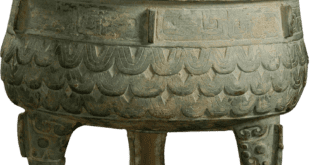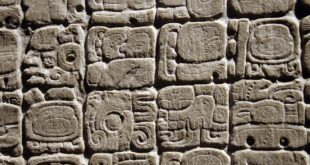10 Remarkable Advancements
1. The Pyramids of Egypt
The Egyptians created complex pyramids using mathematical formulas, labor-intensive methods, and advanced building techniques.
2. The Great Wall of China
The Chinese built a wall that was over 13,000 miles long to protect themselves from invaders.
3. Roman Aqueducts
The Romans built impressive aqueducts that were used to transport fresh water to cities and eventually paved the way for modern plumbing.
4. The Mayan Calendar
The Mayan civilization created a highly sophisticated calendar that was more accurate than the Western world’s calendars at the time.
5. Ancient Indian Mathematics
Ancient Indian mathematics laid the groundwork for modern math concepts such as zero, decimals, and algebra.
6. Mesopotamian Writing System
The Mesopotamians developed cuneiform, one of the earliest writing systems in history.
7. Greek Philosophy
The Greeks were pioneers in the field of philosophy through the works of philosophers such as Socrates, Plato, and Aristotle.
8. Incan Road System
The Incans built a vast network of roads connecting their empire, which allowed for efficient communication and transportation.
9. The Printing Press
The Chinese invented the movable type printing press over 1,000 years before it was re-invented in Europe during the Renaissance.
10. Viking Navigation
The Vikings used a combination of natural features, such as the stars and waves, to navigate their way across vast stretches of open ocean.
The remarkable advancements of ancient civilizations continue to inspire us to this day. From the ambitious building projects of the Egyptians to the innovative developments of the Greeks and beyond, these civilizations have forever impacted the world we live in today. Let’s explore some of these mesmerizing advancements!
The Pyramids of Egypt are one of the most recognized ancient structures in the world. These complex structures required mathematical formulas and advanced building techniques to construct- which still remains a mystery today! Another example from ancient architecture can be found in China’s Great Wall. Covering over 13,000 miles, this impressively large wall was built to protect Chinese occupants from potential invaders.
Ancient India has made significant contributions to the field of Mathematics. They originated the concept of zero, which is the foundation of counting systems used across the world. The Mayans have also left a lasting impact through the creation of a sophisticated calendar that was leagues superior to the Western world at the time. Finally, ancient Greek philosophers, such as Socrates, Plato, and Aristotle, raised curious philosophical questions regarding various fields of knowledge, contributing towards molding not just Europe but the world – as we know it today.
Going towards the later periods in history other civilizations also have remarkable feats to their credit. From the invention of the movable printer by the Chinese over 1,000 years ago to the impressive road system of the Incans, these ancient advancements have opened innovative ways for technology we possess today. Additionally, Viking navigation provides evidence of sailors’ use of natural features, such as the stars and waves, to make their way across vast stretches of open ocean.
At the end of the day, it’s hard not to be in awe when looking at those achievement. These are just a few examples of the remarkable advancements that ancient civilizations contributed to in the long run still prevalent in the modern-day world. From the buildings to navigation and from philosophy to math if analyzed properly it’s incredible to see how fundamental they were to the building of various essential modern techniques and tools.
 Mind Uncharted Explore. Discover. Learn.
Mind Uncharted Explore. Discover. Learn.




